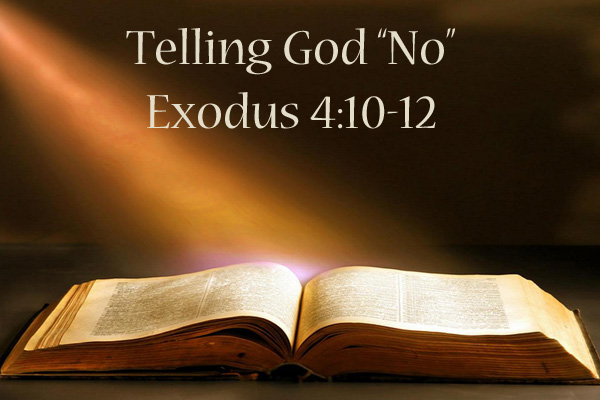
Exodus 4:10-12
10 Moses said to the Lord, “Pardon your servant, Lord. I have never been eloquent, neither in the past nor since you have spoken to your servant. I am slow of speech and tongue.”
11 The Lord said to him, “Who gave human beings their mouths? Who makes them deaf or mute? Who gives them sight or makes them blind? Is it not I, the Lord? 12 Now go; I will help you speak and will teach you what to say.”
Here, we see one of many times in the book of Exodus where Moses doubts whether he can fulfill all that God is asking him to do. Yet in each case, God gives Moses the abilities and knowledge he will need to tackle each new challenge. Even though Moses feels ill-equipped to be all that God asks him to be, God knows better.
As one whose tongue routinely trips all over itself and begins 5 different sentences, only to never finish any of them, I am feeling the truth of these particular verses–I, too, feel “slow of speech and tongue” sometimes. But Moses’ “Pardon your servant” line is about more than just speaking badly; Moses worries that he will fail publicly, which is more a matter of pride than anything.
We often fall into the same trap–I’m currently stuck in it myself! These two verses are stepping ALL over my toes. I, too, have told God “no” because I’m scared I can’t do it. But when we experience God moving in our hearts to do something, a divine “tug” in a particular direction, and then tell God “no, I can’t do that,” what are we actually afraid of? More often, we’re afraid of failing and humiliating ourselves–we fear losing control and looking incompetent, and/or fear that others will judge us harshly for poor performance. (Living example of that sitting right here typing this. :D)
The Lord’s reply to Moses, then, is also a reply to our fears and questions about where God is leading us. He is in control–He gave us our brains and our abilities, and He knows the whole plan where we only perceive a small portion of it. If He leads us to a new task, a new place, new people, then we must trust that He will provide what we need. We just have to allow verse 12 to serve as inspiration–we must go and do, because God will help us and teach us along the way.
